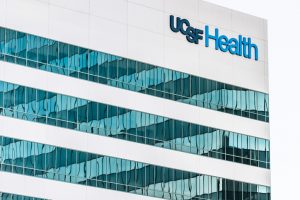Thermo Fisher Scientific has teamed up with the University of California, San Francisco (UCSF) to set up a cell therapy manufacturing center.
The facility – which will be at USCF’s Mission Bay campus in San Francisco – will offer clinical and commercial cGMP cell therapy manufacturing services and technology development support.
According to Thermo Fisher, the facility, which is due to open next year, will serve as a central location where customers and UCSF researchers will have access cell therapy systems, reagents, consumables, instrumentation and compliant software.

Image: iStock/Sundry Photography
COO Mark Stevenson said, “This powerful combination will provide customers – from emerging biotechs to large pharma companies – with integrated, end-to-end solutions to reduce costs and accelerate adoption of cell therapies, ultimately improving patient access to these transformative treatments.”
This was echoed by UCSF chancellor Sam Hawgood, who predicted that providing scientists with both research and manufacturing capacity would yield new therapies.
“We expect breakthrough treatments for many different diseases and conditions to come from cell therapies.
“Establishing cell therapy manufacturing in such close proximity to our scientists, clinicians and patients will enable UCSF to catalyze innovation in living therapeutics and use the resulting discoveries to benefit our patients.”
Cell therapy market
Thermo Fisher has been building its cell therapy offering since March last year when it announced plans for a dedicated research development and manufacturing facility in Princeton,. New Jersey.
Similarly, in the fourth quarter Thermo Fisher announced it would begin the manufacture of plasmid DNA for cell and gene therapies at its facility in Carlsbad, California.
In December Thermo bought Pitonex, citing its programmable dye technology it said would “accelerate research and development in cell therapy, immuno-oncology and immunology research.
And in March this year Thermo further underlined its interest in the fast growing cell therapy sector.
The firm revealed that a proportion of the $600 million it plans to spend on manufacturing technology and capacity will support the production of cell therapies.
